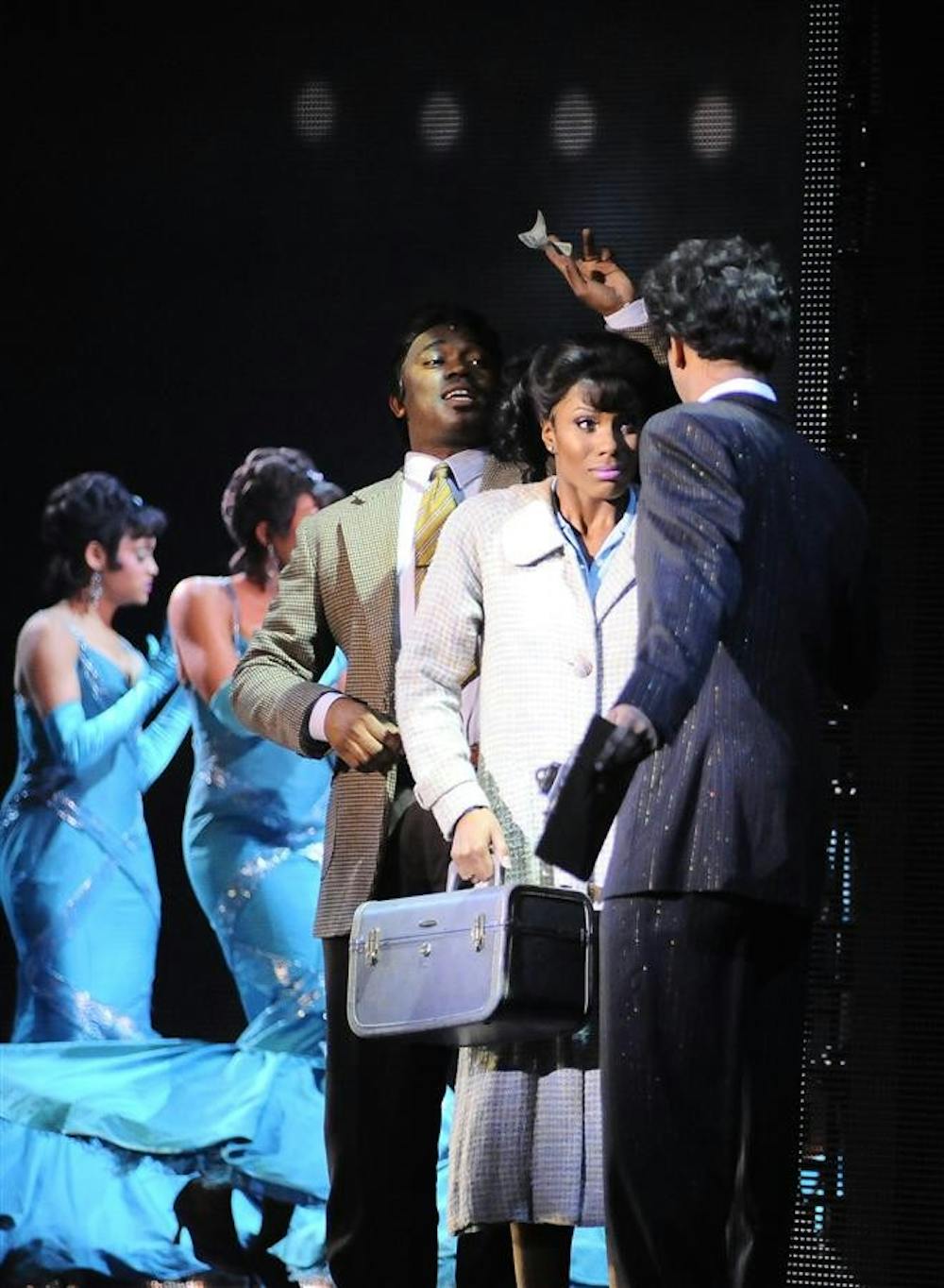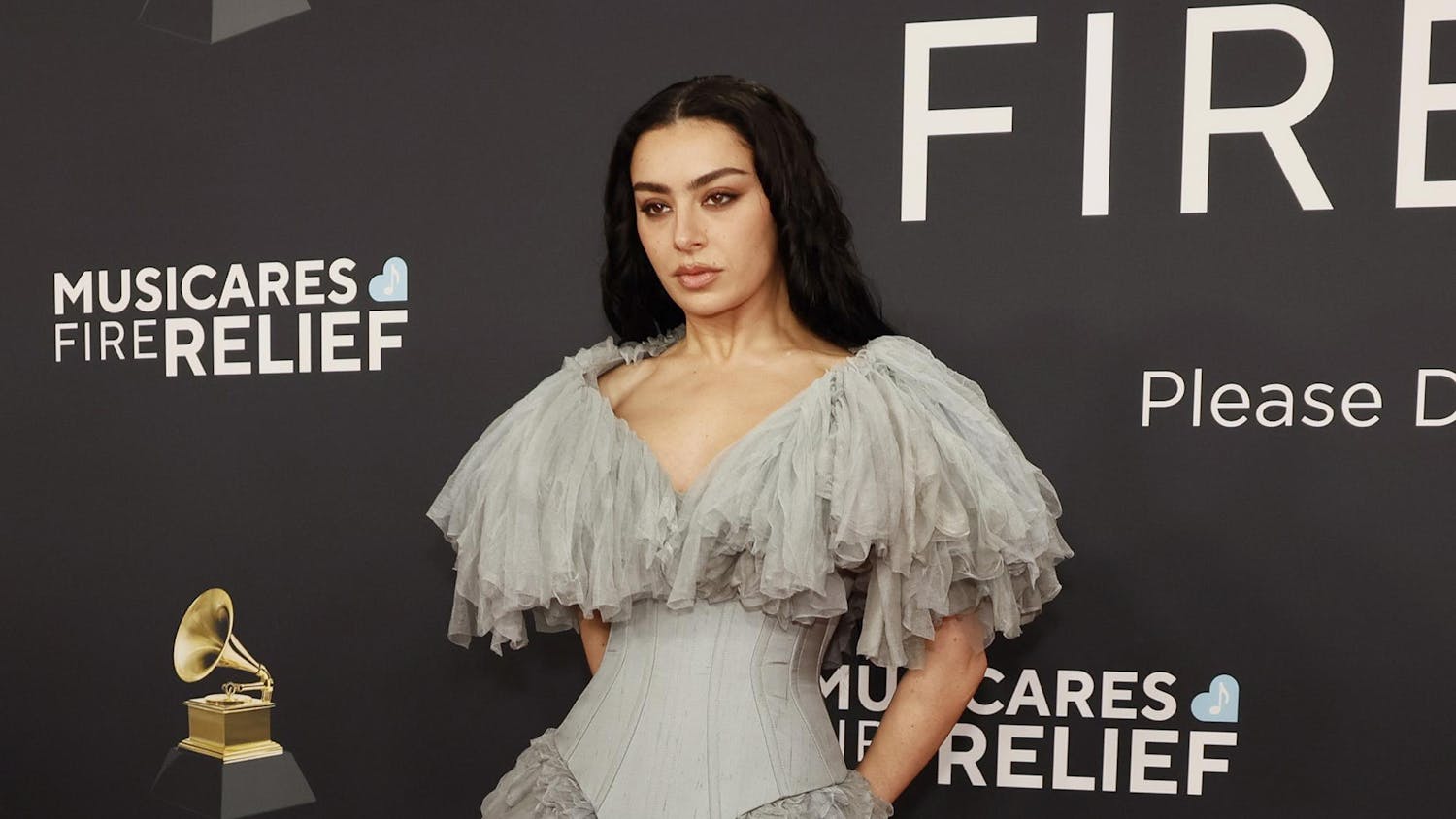The award-winning Broadway musical “Dreamgirls” opened at the IU Auditorium 8 p.m. Tuesday.
The elaborate show focuses on the American music industry in mid 1960s to early 70s — the era of Motown. Big wigged hair, gold glitter jackets and brass-heavy music all recall elements of actual Motown performers like the Marvelettes, Stevie Wonder and Marvin Gaye.
“Dreamgirls” especially recalls famous all-girl group the Supremes, and with good reason, said African American history and Motown scholar Charles Sykes before Tuesday’s performance.
Sykes said the show’s protagonist girl group, the “Dreamettes,” is modeled after the Supremes.
“It’s clear to me that somebody listened to records, read books written about the lives and careers of the Supremes. Yes, ‘Dreamgirls’ is definitely based on the Supremes,” Sykes said.
In his speech, Sykes demonstrated the parallels between the fictitious Dreamettes and the Supremes.
“Both groups started out ‘cleaning up’ for other groups,” Sykes said.
“Cleaning up" meant singing or clapping or sometimes stomping in the background of other artists songs, “whenever they needed a fuller sound.”
Once the girl groups starting becoming successful, they also both changed their names.
The show’s Dreamettes became the “Dreams,” just as the relatively unknown Primettes became the Supremes in real life, Sykes said.
The Dreamettes face a similar struggle in “Dreamgirls” as the Supremes faced back in the 1960s, Sykes said.
“The show deals with the segregation of the actual times.”
In order to reach mainstream white audiences in the 1960’s, the Dreamettes must come up with a softer, smoother sound. So the group switches its focus: from the sexy, powerful voice of lead singer Effie to the more marketable voice of chorus girl Deena.
This switch occurred in the Supremes when former lead singer Flo Ballard was replaced by Diana Ross, who had previously only sang backup, Sykes said.
“The Supremes replaced Florence with Diana because Diana had a softer, sweeter voice that would translate better with the white audience.”
Sykes said there is a clear parallel between the Dreamettes of “Dreamgirls” and the real Motown Supremes. But whether you believe him or not, Sykes said, the point of the show is the portrayal of the real struggles and triumphs of the African American music industry.
“When you go watch the show, I hope what I’ve shared will make you more in tune,” Sykes said. “Musicals like ‘Dreamgirls’ tell an important story about history and the issues that African Americans in music had to go through.”
Some audience members said they agreed with Sykes.
“I’m sure that’s the way it went, with segregation and the times,” said Suzanne Vonwahlde, a member of Tuesday’s audience.
And above all else, a top-notch musical comes down to the music.
“I love it,” Suzanne Vonwahlde said. “They are all so good.”
“Fantastic,” her husband Scott Vonwahlde said. “The woman who plays Effie (Charity Dawson) really can sing.”
“Dreamgirls” will show again tonight as the last performance in the IU Auditorium’s 2012-13 season.
From Motown to Btown
Broadway musical pays tribute to African American sounds of the 1960s and 70s, drawing on real life storylines of famous Supremes trio

Get stories like this in your inbox
Subscribe



